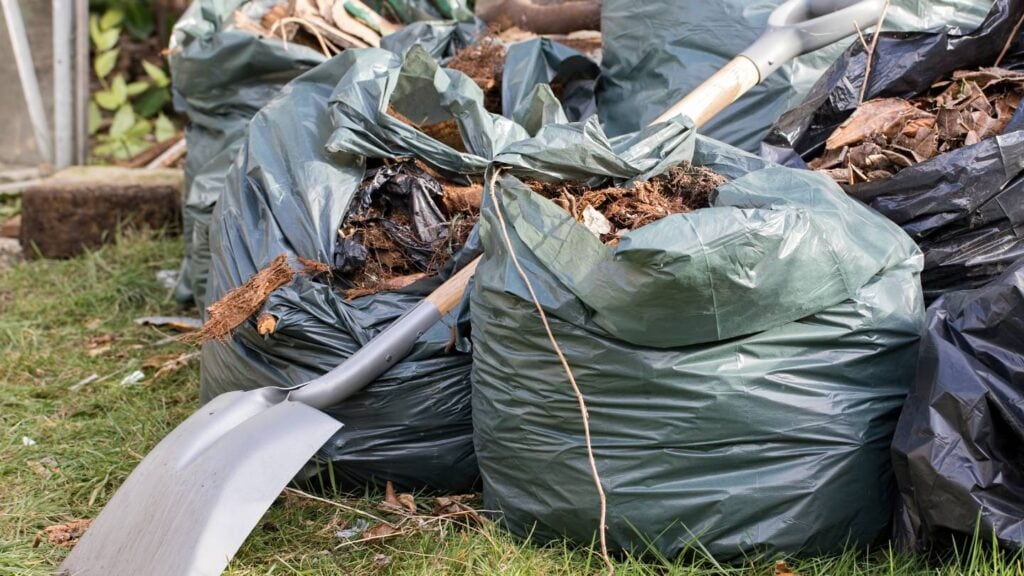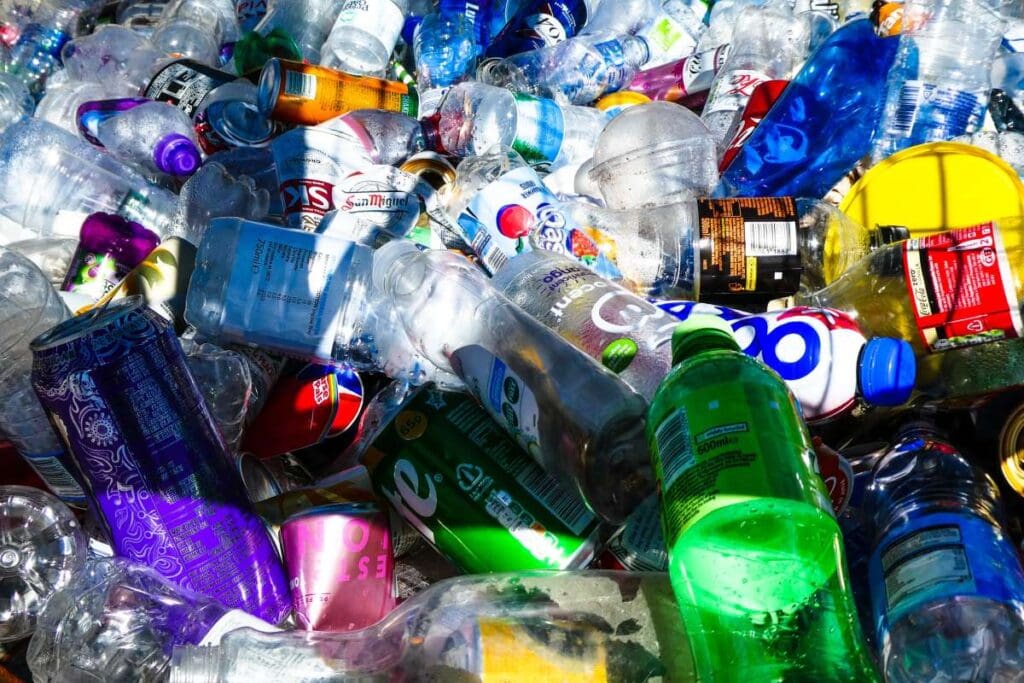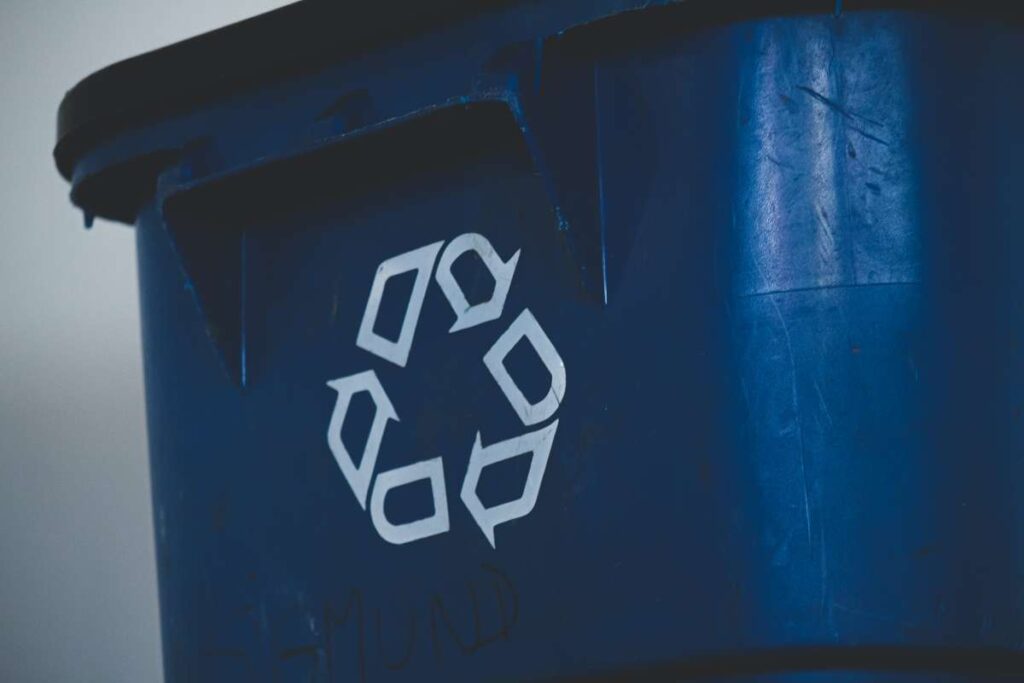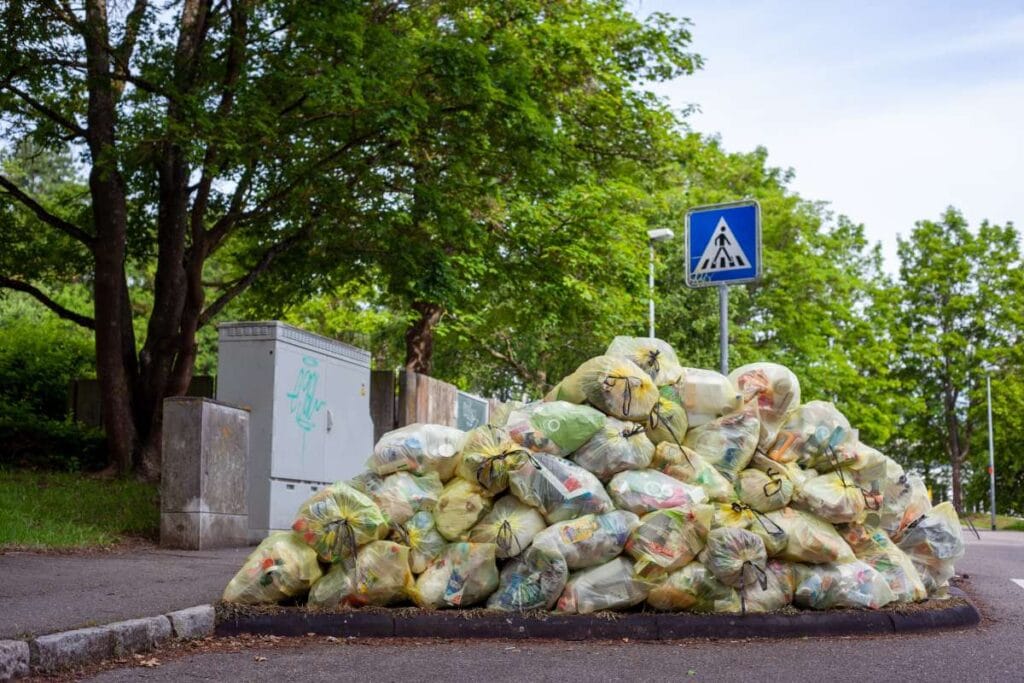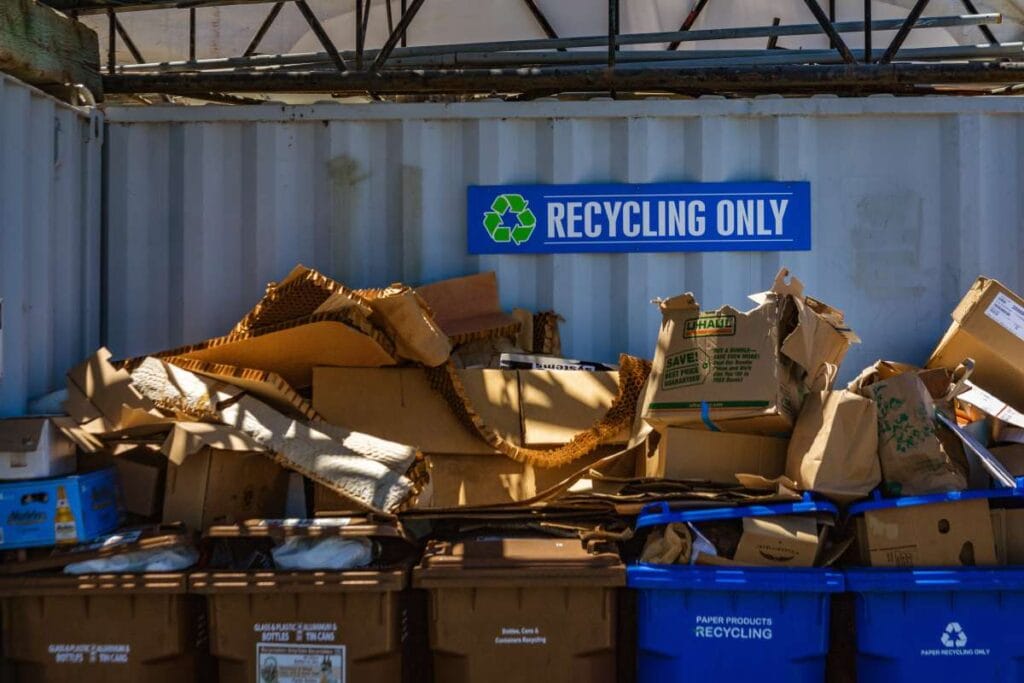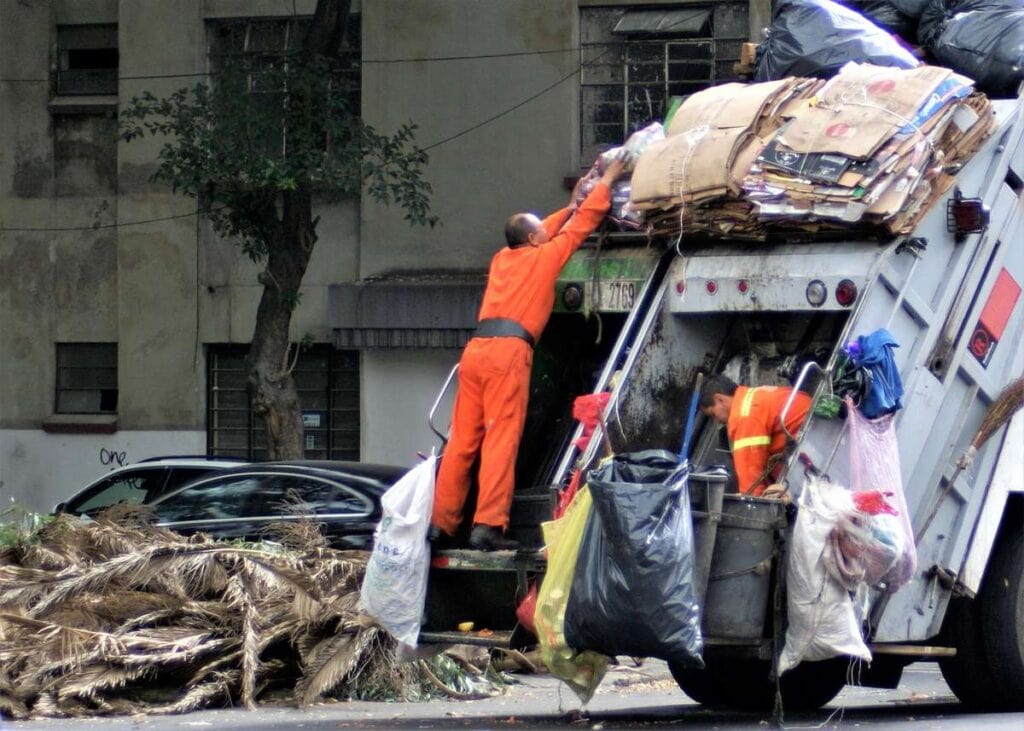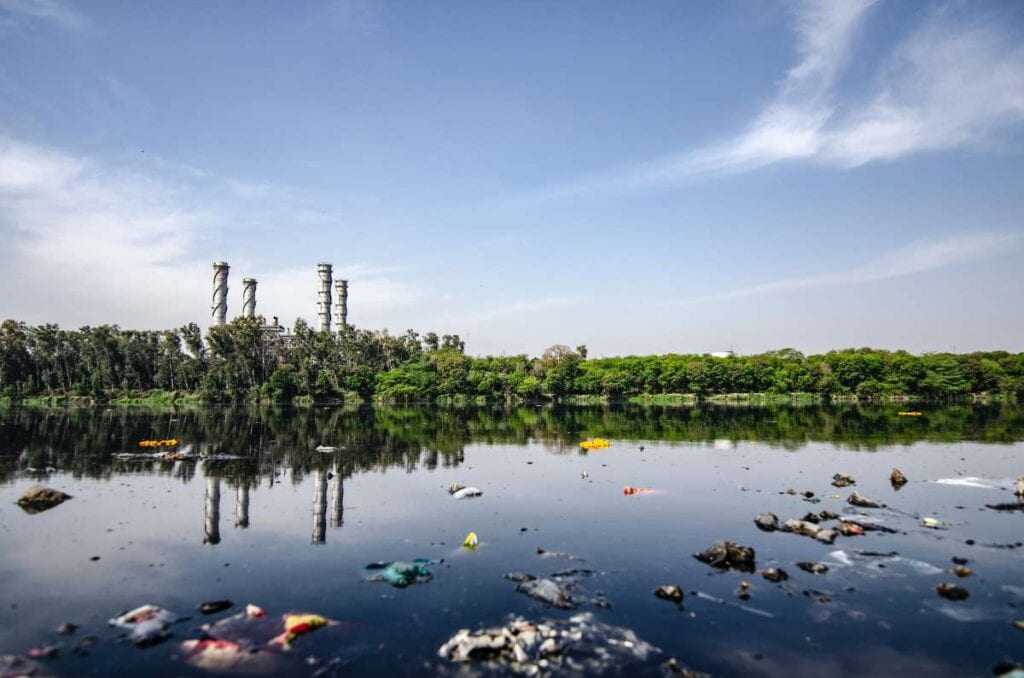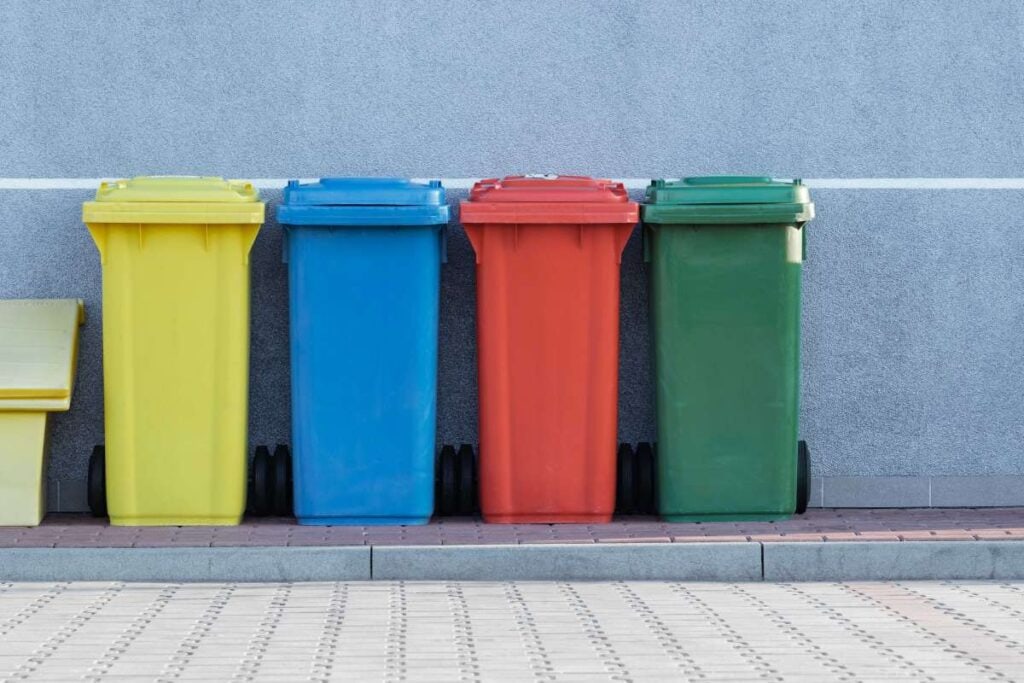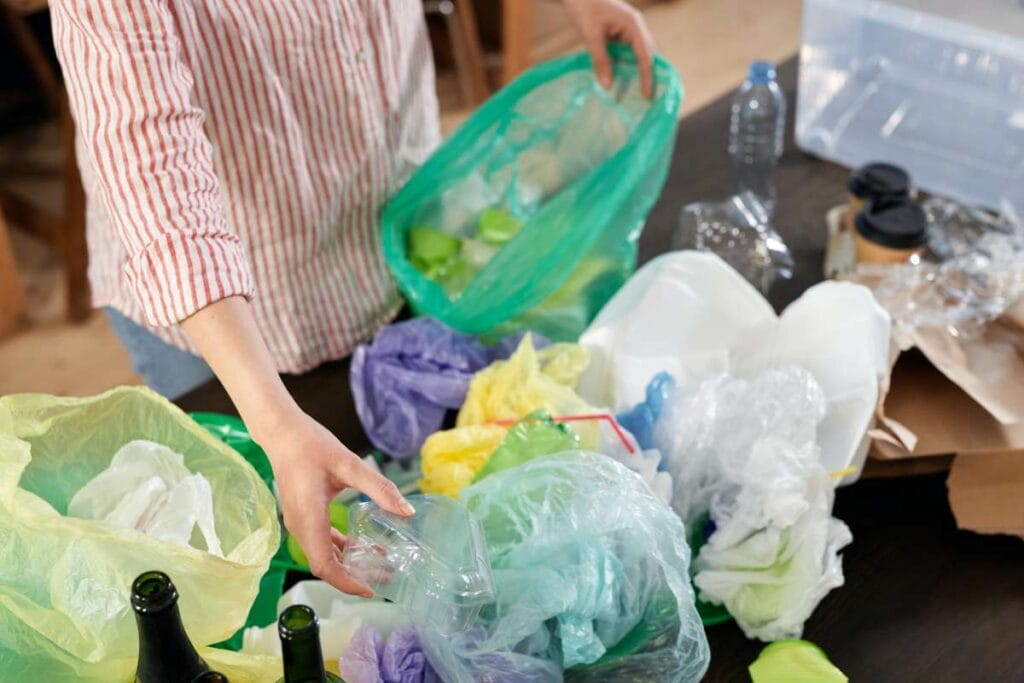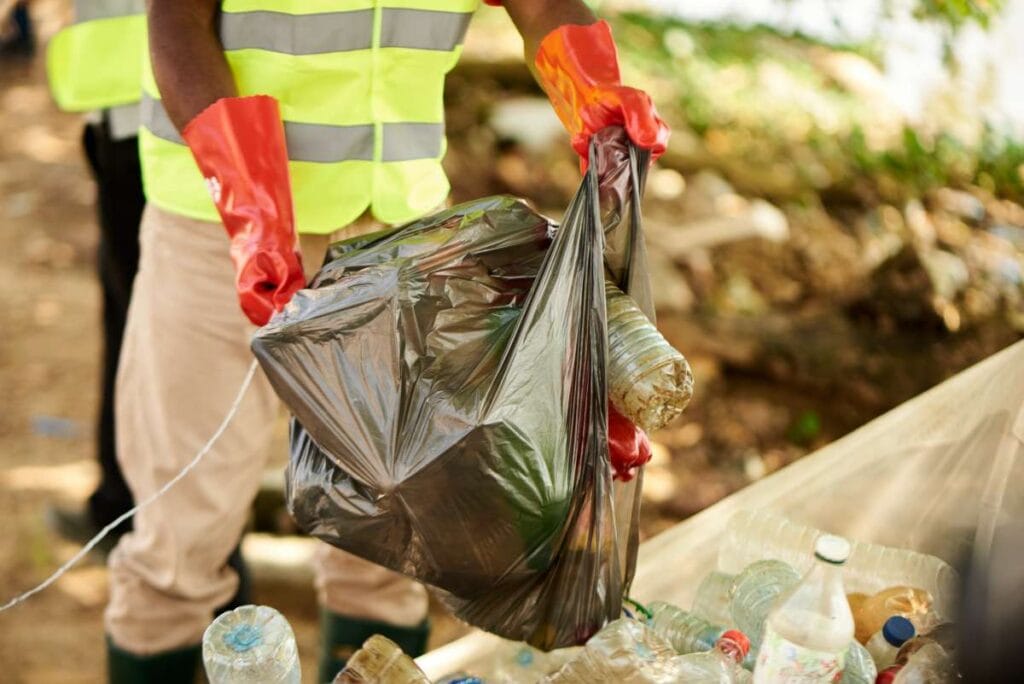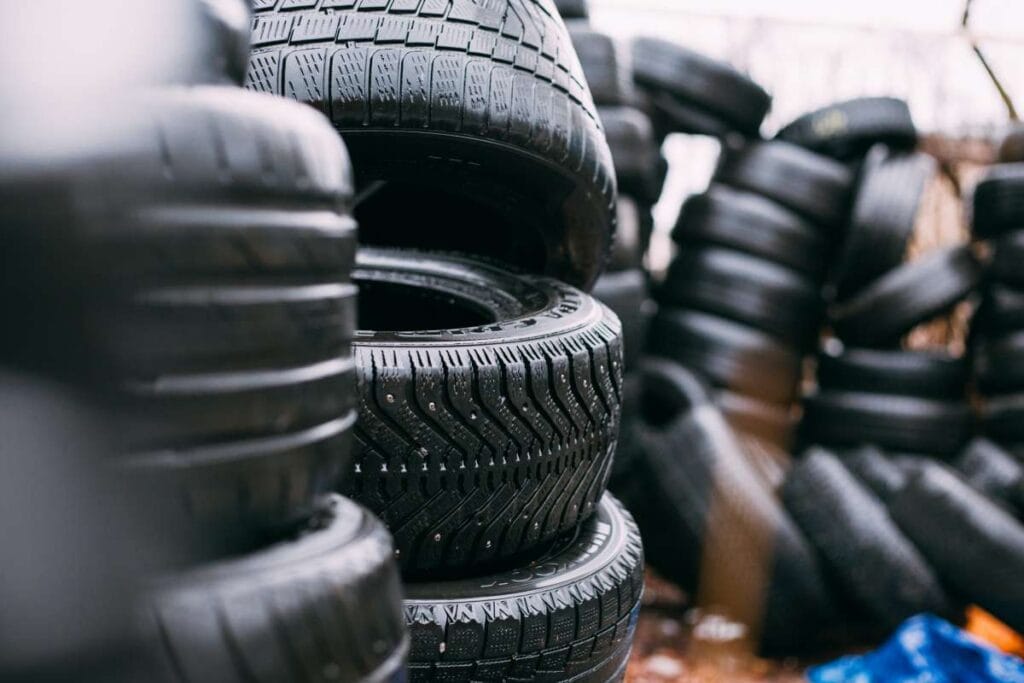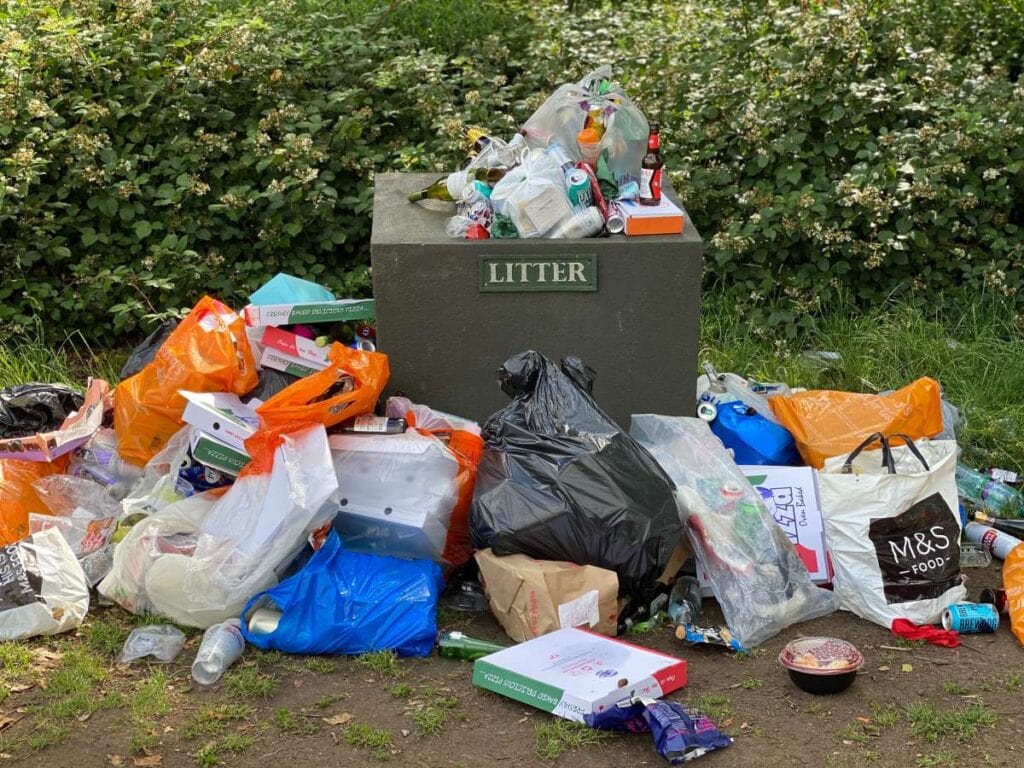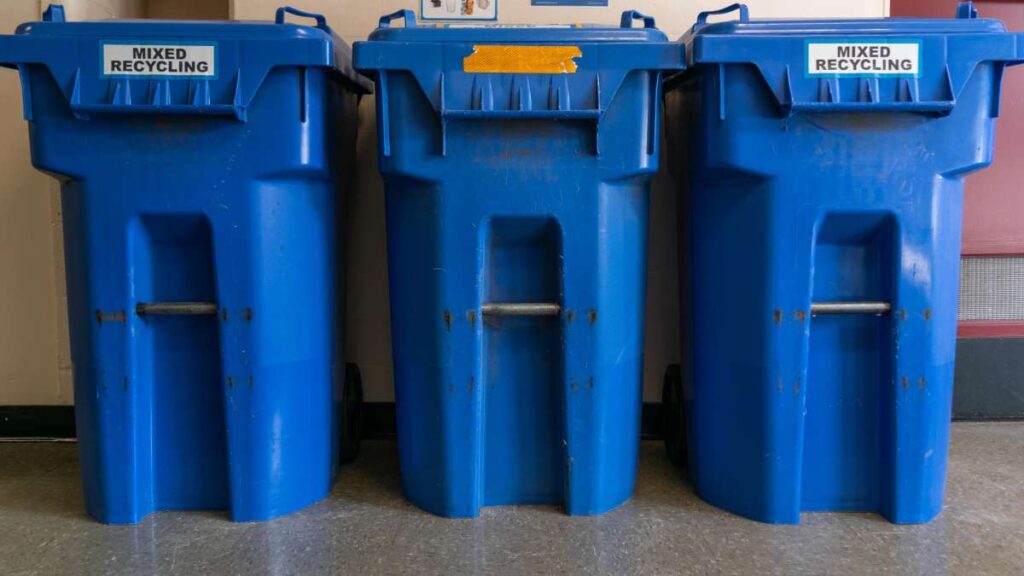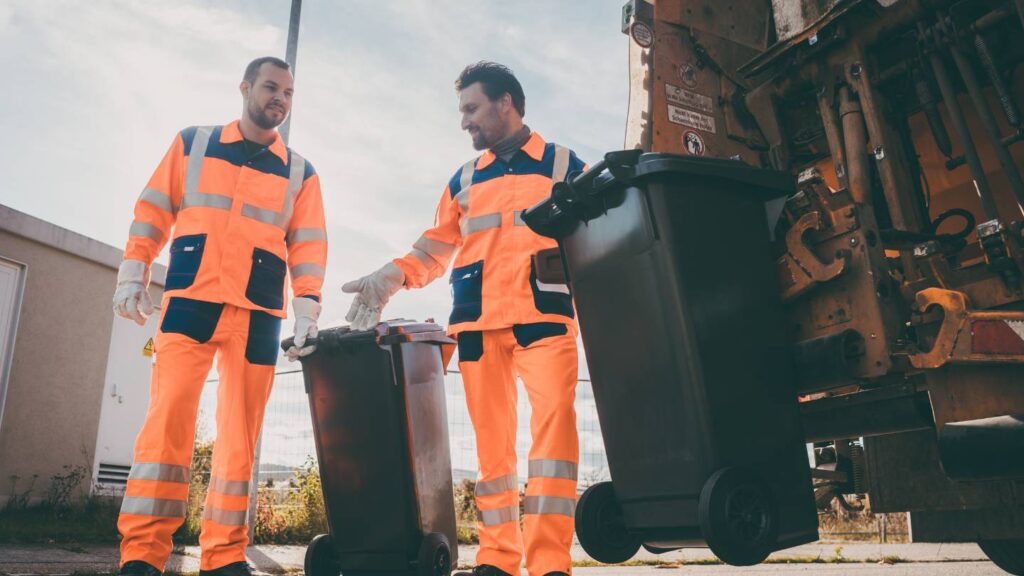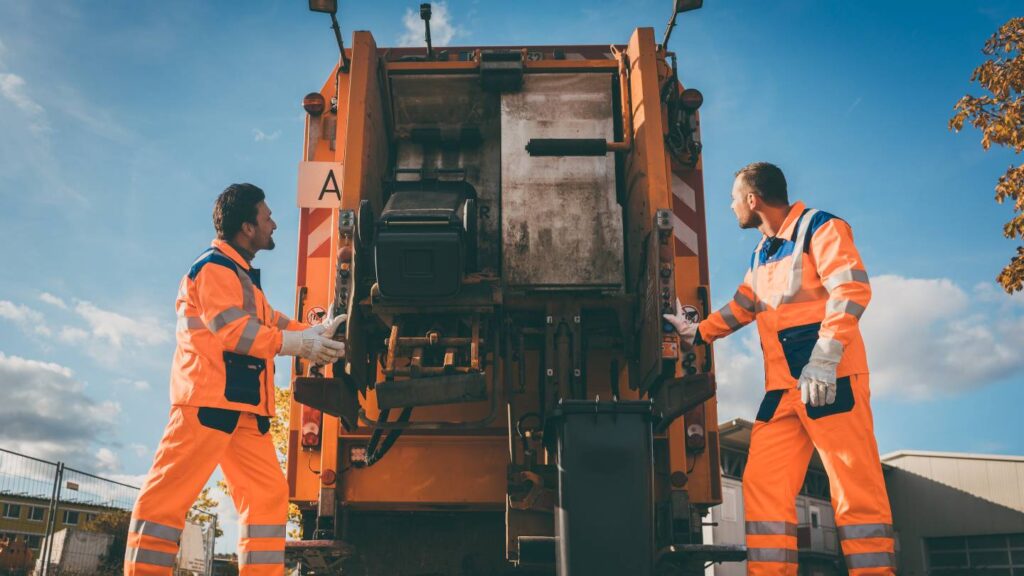While homeowners derive great satisfaction and peace from tending to verdant gardens, they also produce considerable yard garbage. Proper disposal of green waste, including fallen leaves, branches, grass clippings, and more, is vital for maintaining a healthy and visually beautiful outdoor area.
While some homeowners may manage yard debris independently, hiring a professional rubbish collection service is more efficient and less harmful to the environment. This blog will explore how various services handle garden trash, emphasising the importance of sustainability and proper garbage disposal.
How Does Composting and Disposing of Garden Waste Work?
To boost soil fertility and plant growth, it is possible to compost and dispose of organic debris from gardens in a way that turns them into nutrient-rich compost. The eco-friendliness of garden waste management is further assured using the correct disposal techniques. Briefly, this is how most systems for composting and disposing of yard debris work:
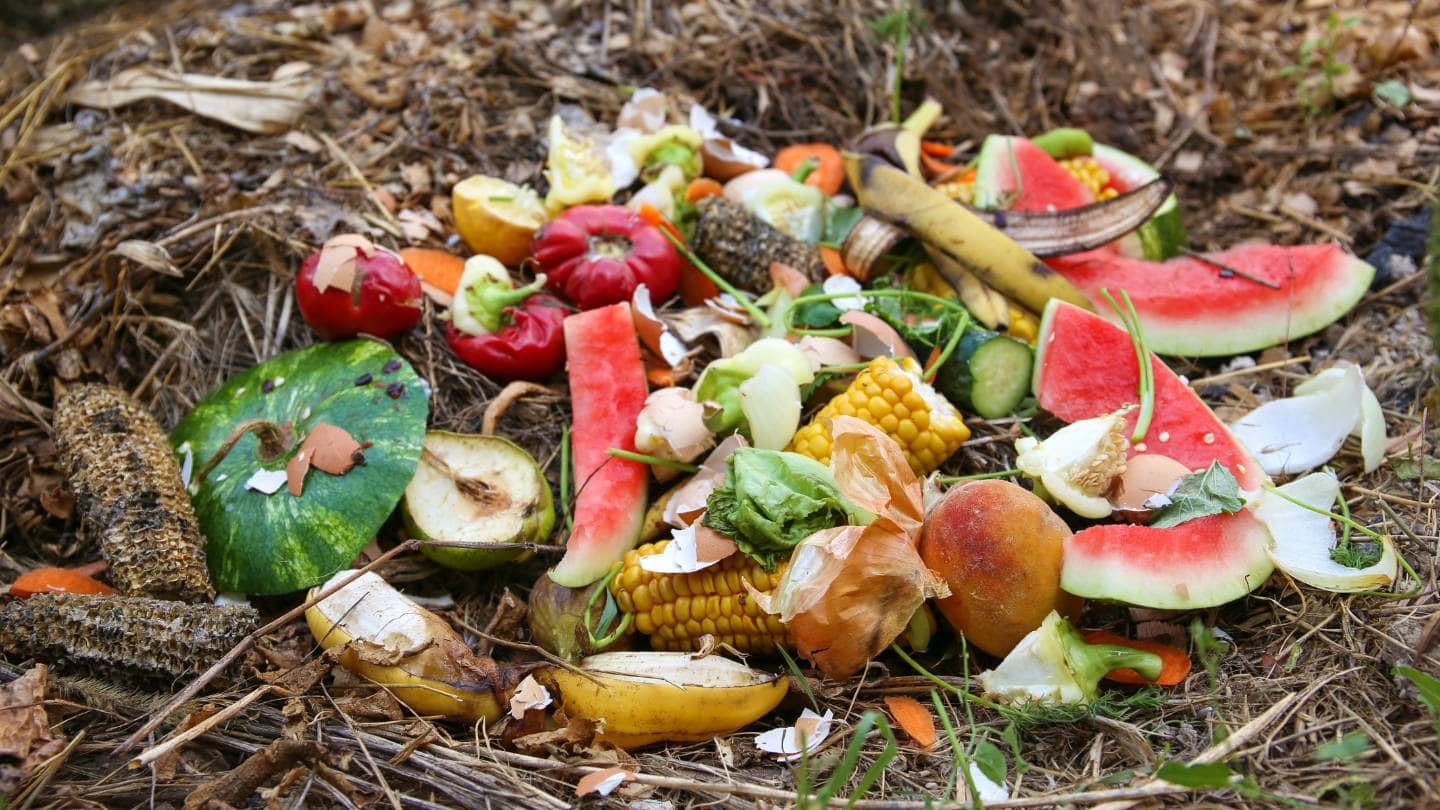
Collection and Segregation
Identification of Organic Waste: Separate organic waste generated in the garden, including leaves, grass clippings, small twigs, prunings, and other plant-based materials. Avoid including diseased plants, weeds with seeds, or invasive species to prevent potential issues during composting.
Composting
Creating a Compost Bin or Pile: Designate an area or use a compost bin for composting. Compost bins can be purchased or made home using wood, plastic, or metal.
Layering: Alternate layers of "green" (nitrogen-rich) and "brown" (carbon-rich) materials. Green materials include kitchen scraps, fresh plant trimmings, and grass clippings. Brown materials include dry leaves, straw, and shredded newspaper.
Turning and Aeration: Turn the compost regularly to provide oxygen to the microorganisms responsible for breaking down the organic matter. Proper aeration speeds up the decomposition process.
Moisture Control: Maintain the right level of moisture in the compost pile. It should be damp but not soggy. Add water if the compost is too dry or incorporate dry materials if it becomes too wet.
Temperature Monitoring: The composting process generates heat. Regularly monitor the internal temperature of the compost pile. A well-managed compost pile will heat up, indicating active decomposition.
Compost Maturity: Composting may take a few weeks to several months, depending on size, composition, and management. The compost is ready when it becomes dark, crumbly, and has an earthy smell.
Application of Compost
Garden Enrichment: Use the finished compost to enrich the soil in your garden. Spread a layer of compost over flower beds, vegetable gardens, or around the base of trees and shrubs.
Soil Conditioning: Compost improves soil structure, water retention, and nutrient content. It enhances microbial activity and creates a healthier environment for plants.
Disposal Methods
Green Waste Bins: Many municipalities provide green waste bins for residents to dispose of organic waste. This waste is then collected and taken to composting facilities.
Local Composting Facilities: Some areas have centralised composting facilities that accept green waste from residents. These facilities use large-scale composting methods to process the waste.
Professional Rubbish Removal Services: In cases where garden waste is too substantial for individual composting, professional rubbish removal services can be hired. These services often have specialised equipment and follow eco-friendly disposal methods.
Mulching: Shredded or chipped garden waste can be used as mulch, especially branches and prunings. Mulching helps retain soil moisture, suppress weeds, and regulate soil temperature.
Education and Awareness
Community Outreach: Local governments and environmental organisations often conduct educational programs to raise awareness about the benefits of composting and responsible waste disposal.
Homeowner Education: Homeowners can educate themselves and their communities about the importance of composting and properly dispose of garden waste. This includes understanding what materials can and cannot be composted.
Legal Compliance
Regulations and Guidelines: It's essential to be aware of and comply with local regulations regarding waste disposal. Some areas have specific guidelines for composting, and adherence to these rules ensures responsible waste management.
Garden waste composting and disposal are integral components of sustainable gardening practices. By transforming organic waste into nutrient-rich compost and following eco-friendly disposal methods, individuals contribute to the health of their gardens and the overall well-being of the environment.
Tips on Garden Waste Disposal
Clearing garden debris may seem impossible initially, but proper preparation and time-saving techniques can make it much easier and more productive. Here are a few pointers for getting rid of yard debris:
Plan and Prioritise
Assess the extent of garden waste and create a plan of action. Identify the areas that require immediate attention and prioritise tasks accordingly.
Separate tasks based on the type of waste, such as leaves, branches, or larger items. This helps streamline the clearance process.
Invest in the Right Tools
Equip yourself with the necessary tools, such as rakes, pruners, and wheelbarrows. Having the right tools makes the job more efficient and less physically demanding.
Consider renting or hiring professional equipment like wood chippers or shredders for larger gardens or substantial debris.
Use Biodegradable Bags
Use biodegradable bags when collecting leaves, grass clippings, or smaller debris. These bags can be included in green waste bins for recycling or composting.
Avoid using plastic bags for garden waste, as they contribute to environmental pollution and are often not accepted in green waste recycling programs.
Composting
Set up a composting area in your garden for organic waste like kitchen scraps, leaves, and small branches. Composting reduces the amount of waste and produces nutrient-rich compost for your garden.
Turn the compost regularly to accelerate the decomposition process and ensure proper aeration.
Bundle Branches and Twigs
Bundle smaller branches and twigs together using twine or reusable ties. This makes it easier to handle during collection and transportation.
Check with your local waste management or recycling facility for specific guidelines on bundling or preparing branches for collection.
Explore Local Recycling Services
Research local recycling services or green waste disposal facilities in your area. Some locations offer drop-off points where you can dispose of garden waste for recycling or composting.
Take note of any specific regulations or guidelines provided by these facilities.
Hire Professional Rubbish Removal Services
Consider hiring professional rubbish removal services for larger garden clearance projects. They have the expertise, equipment, and vehicles to handle garden waste efficiently.
Professional services often follow environmentally friendly disposal methods, contributing to sustainable waste management practices.
Check Local Regulations
Be aware of local regulations regarding garden waste disposal. Different areas may have specific rules on how garden waste should be prepared, collected, and disposed of.
Ensure compliance with any guidelines to avoid potential fines or penalties.
Safety First
Wear appropriate protective gear, gloves, and safety goggles, especially when handling sharp objects or potentially hazardous materials.
Exercise caution when lifting heavy objects, and consider enlisting help for larger garden waste clearance projects.
Educate Yourself
Stay informed about sustainable gardening practices and waste management. Understand the benefits of recycling and composting, and share this knowledge with others in your community.
Explore any local workshops or educational programs on eco-friendly gardening and waste reduction.
Comprehensive Waste Collection
One of the primary advantages of hiring a professional rubbish removal service for garden waste is their comprehensive collection. These services are equipped to handle various types of garden waste, including leaves, branches, grass clippings, and even larger items like old garden furniture or broken pots. Their specialised vehicles and trained staff ensure no waste is left behind, promoting a clean and clutter-free garden environment.
Specialised Equipment for Garden Waste
Professional rubbish removal companies invest in specialised equipment to handle garden waste efficiently. Wood chippers, shredders, and mulchers commonly process branches and larger plant debris, reducing them to manageable sizes. This not only aids in efficient disposal but also contributes to the creation of valuable mulch or compost material, fostering a sustainable approach to waste management.
Eco-Friendly Disposal Methods
A key aspect of professional rubbish removal services is their commitment to environmentally friendly disposal methods. Rather than resorting to traditional landfilling, these services prioritise recycling and composting.
When processed correctly, garden waste can be turned into nutrient-rich compost that can enhance soil quality and promote plant growth. By choosing a professional rubbish removal service, homeowners actively participate in reducing the environmental impact of their garden waste.
Convenience for Homeowners
Handling garden waste on your own can be time-consuming and physically demanding. Professional rubbish removal services offer a convenient solution by taking on the responsibility of waste collection, processing, and disposal. Homeowners can focus on enjoying their gardens without the hassle of dealing with bulky waste and transportation logistics.
Cost-Effective Solutions
Contrary to common misconceptions, hiring a professional rubbish removal service can be cost-effective for managing garden waste. These services typically provide transparent pricing structures, and homeowners can choose services tailored to their needs. Additionally, the time and effort saved by outsourcing waste removal can outweigh the costs associated with DIY disposal methods.
Recycle and Upcycle
Professional rubbish removal services contribute to a circular economy by recycling and repurposing garden waste. Instead of sending organic materials to landfills, where they contribute to greenhouse gas emissions, these services facilitate the transformation of waste into valuable resources. This approach aligns with the broader goal of sustainability and resource conservation.
Safe Handling of Hazardous Waste
Gardens may contain hazardous waste materials such as old pesticides, fertilisers, or other chemicals. Professional rubbish removal services have the expertise and equipment to handle such hazardous waste safely. They follow proper protocols for disposal, ensuring that these materials do not threaten the environment or public health.
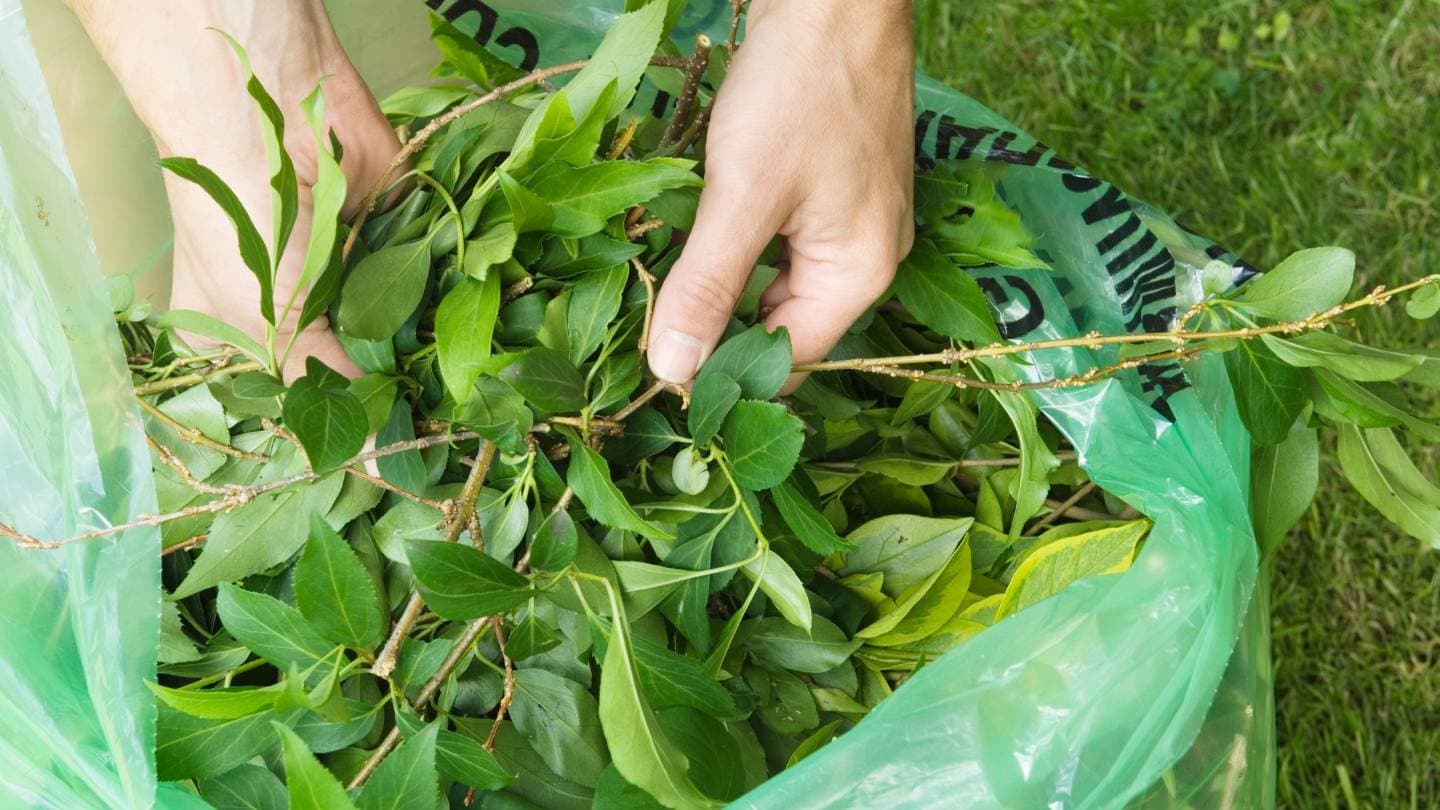
Benefits of Hiring Professional Garden Waste Removal
Yard clippings, grass, flower cuttings, and other biodegradable items comprise garden garbage. After processing, the garden waste can be transformed into organic manure used on agricultural land. Picking up all the yard debris is a massive undertaking that only some people can handle. The role of junk removal services is to gather the garden debris in bulk and dispose of it in an environmentally responsible way when this occurs.
Finding the ideal location to dispose of the garden trash is difficult, even if the persons can remove it themselves. In such a situation, garbage collection services will gather and transport the trash to designated landfills for disposal. Garbage clearance services will employ state-of-the-art equipment to effortlessly transport massive amounts of garden debris, which is difficult for individuals to transfer or carry.
There are a lot of benefits to using a waste cleaning service to get rid of yard debris. The household members will also benefit from this because it will provide a physical break. Additionally, waste will be handled practically by professional garbage removal services. The landfill approach is the main choice for disposing of garden trash. No household yard garbage should ever make it to a landfill. The garden debris can be turned into compost instead.
Waste management firms with experience in the field will be familiar with the best practices for recycling organic wastes into compost. Many people enjoy gardening as a hobby. The same holds for gardening waste; proper disposal of this material is essential. Composting entails storing refuse in designated areas and covering it with an equivalent quantity of dry leaves.
Keeping the waste covered with dry leaves at a reasonable temperature for an extended period is recommended. A moderate temperature is ideal, neither too hot nor too cold. You can turn your trash into compost if it sits for a while. Since compost increases soil fertility, it will be utilised in agricultural settings.
Instead of throwing away garden trash in landfills, it would be better to turn it into compost. Heat, gas, manure, and other forms of energy can be extracted from organic waste. Garbage collection services will go through yard trimmings in an environmentally responsible way, reusing and recycling them into organic manure.
Conclusion
Proper garden waste management is essential for keeping outdoor spaces healthy and minimising environmental damage. Garbage collection services are better for the environment and more efficient than households.
Locating organic waste, building a compost bin or pile, layering materials, turning and aerating, keeping moisture, monitoring temperature, and composting are all steps in the process of composting and disposing of garden waste. Soil conditioning and vegetable enriching are two further uses for compost.
While local composting facilities employ large-scale processes, governments supply residents with green trash bins to dispose of organic waste. Large amounts of trash are best handled by professionals. To control soil temperature and keep soil moisture, use mulch made of chopped or shredded garden waste.
Raising awareness about composting and safe waste disposal requires community engagement and homeowner education. The proper management of trash also requires adherence to local ordinances and standards. People may help keep their gardens and the planet healthy by recycling organic waste into compost and disposing of it in an eco-friendly way.
Even though disposing of garden debris isn't always a picnic, there are ways to make the process go more smoothly and with less effort if you plan ahead. Start by taking stock of the garden's trash, making a strategy, and then breaking down the various types of trash into their own specific responsibilities.
For smaller gardens or less frequented areas, invest in rakes, pruners, and wheelbarrows. For larger gardens or more substantial debris, think about renting or hiring professional equipment, such as wood chippers or shredders.
For green garbage recycling programmes, use biodegradable bags instead of plastic ones for smaller items of trash. Before you put organic trash in the compost pile, gather small branches and twigs and tie them together with twine or reusable ties. Take note of any particular rules and do some research on local recycling providers.
Content Summary
- Professional rubbish removal services ensure comprehensive collection of various types of garden waste, including leaves, branches, and grass clippings.
- Specialized equipment, such as wood chippers and mulchers, is utilized by professional services to efficiently process and reduce larger plant debris.
- Eco-friendly disposal methods, emphasizing recycling and composting, are a key focus for professional rubbish removal services, reducing the environmental impact.
- Hiring professionals for garden waste removal offers convenience, saving homeowners time and effort, and allowing them to enjoy their gardens without the hassle of waste management.
- The cost-effective nature of professional services dispels common misconceptions about the affordability of outsourcing garden waste removal.
- Professional rubbish removal contributes to a circular economy by recycling and repurposing garden waste, aligning with sustainability and resource conservation goals.
- Safe handling of hazardous waste, often found in gardens, is a specialty of professional rubbish removal services, ensuring compliance with disposal protocols.
- Transparency in pricing structures and the ability to choose services tailored to specific needs make hiring professionals a financially viable option for garden waste management.
- Proper disposal methods, including composting, enrich soil fertility, and contribute to plant growth, showcasing the ecological benefits of garden waste management.
- Recycling and upcycling by professional rubbish removal services further contribute to sustainable waste management, minimizing the impact on landfills.
- Timely and efficient waste collection by professionals saves homeowners time and effort, particularly in the case of large garden clearance projects.
- Education initiatives by rubbish removal services and local governments raise awareness about the benefits of composting and responsible waste disposal.
- Homeowner education is encouraged to promote a broader understanding of composting and waste disposal practices within communities.
- Adherence to local regulations ensures legal compliance in garden waste disposal, preventing potential fines or penalties for homeowners.
- Professional rubbish removal services actively engage in community outreach, fostering environmentally conscious communities and promoting responsible waste management.
- The expertise and equipment of professional services make them well-suited for handling substantial garden waste that may be challenging for individuals to manage.
- Use of biodegradable bags in waste collection promotes eco-friendly practices and avoids contributing to plastic pollution in landfills.
- Composting processes, including layering, turning, and moisture control, are explained to showcase the steps involved in transforming organic waste into nutrient-rich compost.
- The application of compost improves soil structure, water retention, and nutrient content, creating a healthier environment for plants.
- Local composting facilities and green waste bins are part of disposal methods that contribute to sustainable waste management practices.
- Bundling smaller branches and twigs facilitates collection and transportation, adhering to specific guidelines provided by waste management facilities.
- Planning and prioritizing tasks in garden waste clearance streamline the process, ensuring efficient removal of debris.
- The importance of wearing protective gear during garden waste clearance is emphasized, promoting safety for homeowners.
- Utilizing the right tools, such as rakes and wheelbarrows, enhances efficiency in garden waste clearance projects.
- Mulching shredded or chipped garden waste provides additional benefits, such as moisture retention and weed suppression.
- Checking local regulations and staying informed about sustainable gardening practices contribute to responsible waste management.
- Yard waste, when processed correctly, can be transformed into organic manure, benefiting agricultural land and promoting sustainability.
- Waste clearance services handle the disposal of garden waste in an environmentally responsible way, transporting it to designated landfills or recycling facilities.
- The physical break provided by professional services benefits homeowners, especially when dealing with large amounts of garden debris.
- Composting garden waste instead of sending it to landfills contributes to heat, gas, and manure production, extracting energy from organic waste.
Frequently Asked Questions
Professional trash removal services may manage domestic items, building debris, green garbage, electronic waste, and dangerous materials. They can handle many waste types and recycle or dispose of them.
Waste removal prices depend on volume, type, and location. Some firms charge by the amount of trash space in their trucks, while others offer fixed rates or customised quotes based on task requirements.
Professional trash removal services often recycle. To find recyclables, they actively sort at the collecting location. These things are recycled, helping sustainability and lowering waste disposal's environmental impact.
Scheduling trash removal is usually easy. Most services offer online or phone booking for convenient pickup times. Many removal firms attempt to respond quickly, especially for critical situations like relocation or building.
Professional trash hauliers handle dangerous materials legally and securely. Compliance with local legislation is ensured by thorough identification, containment, and disposal methods.
